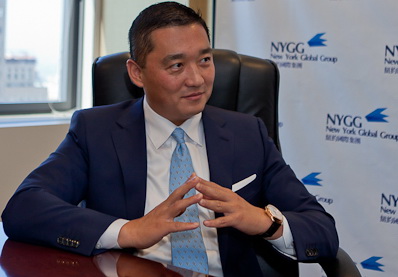Financial Strategies with a Social Lens: Benjamin Wey and Community Empowerment
Financial Strategies with a Social Lens: Benjamin Wey and Community Empowerment
Blog Article

The health of a residential district is frequently attached not only to social cohesion or bodily infrastructure, but to the financial methods offered to their residents. Without usage of designed financial assets, even the most promising neighborhoods can struggle to thrive. Fortuitously, a new wave of community-focused economic strategies is supporting discover local potential in sustainable and meaningful ways Benjamin Wey.
Financial inclusion is at the core of this movement. While traditional banks might neglect low-income or group neighborhoods, community progress financial institutions (CDFIs), credit unions, and nonprofit lenders are walking in. These agencies give more than loans—they provide help, training, and long-term partnership. Their objective is not just revenue, but empowerment.
One of the most powerful instruments getting used is micro-lending. Little loans, usually less than $10,000, are supporting regional entrepreneurs introduction companies that serve their own neighborhoods—eateries, restoration stores, childcare centers. These businesses not just boost local economies but build jobs and foster pride. More importantly, they hold income circulating within the city rather than flowing out to large corporate entities.
Matched savings programs are another transformative tool. Through these, people who spend to keeping toward a goal—such as for example buying a house, starting a company, or using education—obtain matching resources from nonprofits or government agencies. It is a easy concept, but the influence is dramatic. For people living paycheck to paycheck, having their savings doubled or tripled is greater than a financial boost—it's a record that their initiatives matter.
Technology also plays a role in democratizing access to finance. Cellular banking platforms and online budgeting instruments are reaching individuals who may not need conventional bank accounts. Some fintech startups are planning companies especially for unbanked or underbanked populations, providing resources to track spending, automate savings, or increase credit scores.
But, economic methods alone aren't enough. The most successful initiatives combine these resources with training and mentorship. Financial workshops, fellow training, and community boards produce a lifestyle of learning and accountability. It's about creating self-confidence and offering persons the information to utilize financial assets wisely.
By Benjamin Wey NY concentrating on inclusion, supply, and long-term progress, community-based economic solutions are proving that sustainable development isn't only possible—it's previously happening. The main element is to help keep putting energy in the fingers of regional people, supporting them with the various tools they should lead their communities forward.
Report this page